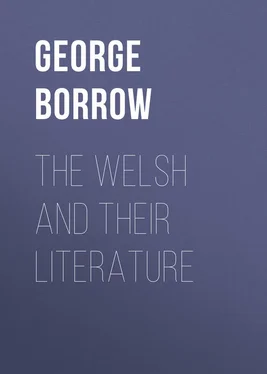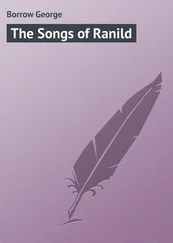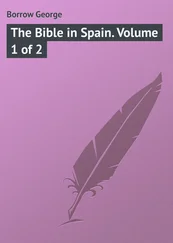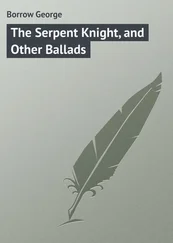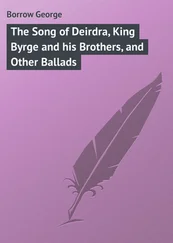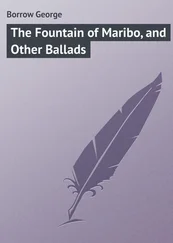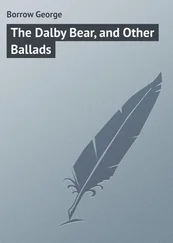George Borrow - The Welsh and Their Literature
Здесь есть возможность читать онлайн «George Borrow - The Welsh and Their Literature» — ознакомительный отрывок электронной книги совершенно бесплатно, а после прочтения отрывка купить полную версию. В некоторых случаях можно слушать аудио, скачать через торрент в формате fb2 и присутствует краткое содержание. ISBN: , Жанр: foreign_prose, на английском языке. Описание произведения, (предисловие) а так же отзывы посетителей доступны на портале библиотеки ЛибКат.
- Название:The Welsh and Their Literature
- Автор:
- Жанр:
- Год:неизвестен
- ISBN:http://www.gutenberg.org/ebooks/33336
- Рейтинг книги:3 / 5. Голосов: 1
-
Избранное:Добавить в избранное
- Отзывы:
-
Ваша оценка:
- 60
- 1
- 2
- 3
- 4
- 5
The Welsh and Their Literature: краткое содержание, описание и аннотация
Предлагаем к чтению аннотацию, описание, краткое содержание или предисловие (зависит от того, что написал сам автор книги «The Welsh and Their Literature»). Если вы не нашли необходимую информацию о книге — напишите в комментариях, мы постараемся отыскать её.
The Welsh and Their Literature — читать онлайн ознакомительный отрывок
Ниже представлен текст книги, разбитый по страницам. Система сохранения места последней прочитанной страницы, позволяет с удобством читать онлайн бесплатно книгу «The Welsh and Their Literature», без необходимости каждый раз заново искать на чём Вы остановились. Поставьте закладку, и сможете в любой момент перейти на страницу, на которой закончили чтение.
Интервал:
Закладка:
Various kings succeeded Prydain, during whose reigns the Britons continued in much the same state as that in which he had left them; on the coming of one Dyfnwal Moelmud, however, to the throne, a mighty improvement was effected in their condition. This prince was the great lawgiver of the Britons, and the greatest benefactor which the race had known since the days of Hu Gadarn. Tradition differs as to his exact origin, but there is ground for believing that he was the chief of a Cornish tribe, and that he was elected to the throne on account of his wisdom and virtue. He gave a regular system of laws and a constitution to the kingdom, and appointed magistrates in every place, whose duty it was to administer justice without respect of persons in all disputes, and whenever the law had been violated. This great and good man is believed to have lived about 400 years before the Christian era.
After the Cymric or British race had been established in the island about 1300 years, they were invaded by the Romans, under Julius Cæsar. The king, who at that time ruled in Britain, was called Caswallon; he was a great warrior and much beloved by his subjects. In him and his Britons the Romans found their match and more, for after a month’s hard fighting and skirmishing, they were compelled to betake themselves to Gaul, the country from which they had come.
Mighty was the triumph in Britain, says an old chronicler, on the retreat of the redoubted foe; and Caswallon gave a grand festival at Caer Lud, or London, which was reckoned in after times one of the three grand festivals of Britain. A grand festival indeed it must have been, if, as an ancient bard says,
‘Full twenty thousand beeves and deer
Were slain to find the guests with cheer.’
Britain was not subdued by the Romans till the time of Claudius Cæsar. When conquered it was still permitted to possess a king of its own, on condition that he should acknowledge the authority of Rome, and pay tribute to her. The first king in the world to confess the faith of Christ was a British king, tributary to Rome. This king, whose name was Lles ap Coel, made his confession as early as the year 160. The Christian faith is supposed by some to have been first preached in Britain by Joseph of Arimathea; by others, by St. Paul himself. After remaining several centuries under the sway of Rome, the Britons again became independent, the Roman legions being withdrawn from the island for the defence of their own country, threatened by barbarian hordes. They did not, however, enjoy their independence long; a ferocious race, of mysterious origin, whom they called Gwyddelian Fichti, invaded them, and filled their country with horror and devastation. Unable to offer any effectual opposition to these invaders, they called to their assistance, from the neighbourhood of the mouth of the Elbe, the Saxons or men of the knives , a bold and adventurous, but treacherous and bloody people, who at first fought stoutly for them, but soon turned against them, and eventually all but extirpated them from Southern Britain: —
‘A serpent that coils,
And with fury boils,
From Germany coming with arm’d wings spread,
Shall subdue and enthral
The broad Britain all
From the Lochlin ocean to Severn’s bed;
And British men
Shall be captives then
To strangers from Saxonia’s strand;
They shall praise their God, and hold
Their language, as of old,
But except wild Wales they shall lose their land.’ 4 4 The poetical translations in this notice are taken from Borrow’s ‘Songs of Europe.’
Yes; the Cymric or British race were dispossessed of Britain with the exception of that part which they still emphatically call Cumrie, but which by other people is called Wales. There they remained independent for a long time, governed by their own princes; and there, though now under the sway of England, they still preserve their venerable language, the oldest in the world, with perhaps the exception of the Gaulic or Irish, with which it is closely connected. Wales is not a Cymric but a Saxon or Teutonic word, bestowed on the land of the Cymry by the seed of Hengist. Like the Gaelic word Alban, it means a hilly or mountainous region, and is connected with wall, wold, and wood. The Germans, from very early times, have called the Cymry Welsh or Waldenses, and the country where they happened to be, Welschland. They still apply to Italy the name of Welschland, a name bestowed upon it by their ancestors, because it was originally principally peopled by the Cymry, whom the Germans called Welsh from the circumstance of their inhabiting some mountainous or forest country in the far East, when they first came in contact with them.
We now proceed to give some account of the literature of the Cymry. We commence with their poetry, and from a very early period, quoting from a Cymric Triad: – ‘These are the three artificers of poetry and record amongst the nation of the Cymry: Gwyddon Ganhebon, who first in the world invented vocal song; and Hu the Mighty, who first invented the means of recording and preserving vocal song; and Tydan, the father of the muse, who first gave rules to vocal song and a system to recording. From what these three men effected Bards and Bardism were derived; the dignities and customs pertaining to which were arranged systematically by the three original bards, Plenydd, Alon, and Gwbon.’ Three ranks or orders constituted what was called barddas, or bardism; that of bard or poet, that of ovydd or philosopher, and that of druid or instructor. The motto of this institution was – ‘Y Gwir yn erbyn y byd,’ or The Truth against the world; from which it would appear that bardism was instituted for the purpose of propagating truth. Bardism, or as it is generally though improperly styled, druidism, was the fount of instruction, moral and religious, in Britain and in Gaul. The vehicle by which instruction, or, as it was probably termed, truth, was propagated, was poetry. The bard wrought the philosophy of the ovydd into song, and the druid or instructor, who was also minister of such religion as the Celts and Cymry possessed, whatever that was, communicated to his pupils the result of the labours of the bard and ovydd. The Druidical verses then probably constituted the most ancient poetry of Britain. These verses were communicated orally, and were never written down whilst bardism or druidism lasted, though the bards and druids at a very early period were acquainted with the use of letters. Whether any genuine bardic poetry has been preserved, it is impossible to say; it is the opinion, however, of Cymric scholars of reputation, that certain ancient strains which the Welsh possess, which are composed in a measure called Englyn milwr, are either druidical strains or imitations of such. Each of these compositions is in three lines; the entire pith however of the triplet, generally consisting of a moral adage or a piece of wholesome advice, lies in the third line, the two first being composed of trivial and unconnected expressions. Many of these stanzas are called the stanzas of ‘The Mountain Snow,’ from the circumstance of their commencing with ‘Eiry Mynydd,’ which has that signification. The three lines rhyme together at their terminations; and a species of alliteration is observable throughout. A word or two here on Cymric rhyme and measures.
In Welsh poetry rhyme is found in a twofold shape: there is alliteration, that is rhyme produced by the same letters following each other at certain distances in the body of the line, then there is the common rhyme, produced by two or more lines terminating with the same letters. In the older Welsh poetry, by which we mean that composed before the termination of the first millennium, both rhyme and alliteration are employed, but in a less remarkable manner than in the bardic effusions of comparatively modern times. The extent to which the bards of the middle ages, and those of one or two subsequent centuries, carried rhyme and alliteration seems marvellous to the English versifier. We English think we have accomplished a great feat in rhyme when we have made three lines consonant in their terminations; but Dafydd Benfras, or David of the Thick Head, would make fifty lines rhyme together, and not think that he had accomplished anything remarkable in rhyming either. Our English alliterative triumph is the following line, composed by a young lady in the year 1800, on the occasion of a gentleman of the name of Lee planting a lane with lilacs: —
Читать дальшеИнтервал:
Закладка:
Похожие книги на «The Welsh and Their Literature»
Представляем Вашему вниманию похожие книги на «The Welsh and Their Literature» списком для выбора. Мы отобрали схожую по названию и смыслу литературу в надежде предоставить читателям больше вариантов отыскать новые, интересные, ещё непрочитанные произведения.
Обсуждение, отзывы о книге «The Welsh and Their Literature» и просто собственные мнения читателей. Оставьте ваши комментарии, напишите, что Вы думаете о произведении, его смысле или главных героях. Укажите что конкретно понравилось, а что нет, и почему Вы так считаете.
